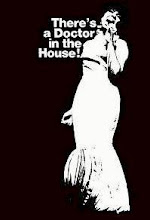»The Bad Apple« (1968)
One of the most famous and memorable songs of 1967 was »Ode To Billie Joe« by Bobbie Gentry. Almost over night the song not only reached the top of the pop charts but was covered by countless other singers.
Indeed, up to the present day it is hard, if not impossible, to not be overwhelmed by the melodramatic charme of the song and the voice, rough and smooth at the same time, of Bobbie Gentry:
Bobbie Gentry: »Ode To Billie Joe« from the Capitol LP »Ode To Billie Joe« (1967)
The impact of Bobbie's »Ode« went far beyond the pop field and quickly made itself felt in the realms of classic C&W, Soul and Gospel. In many cases the song was not only adapted in order to fit a certain mould. Rather, there were soon a number of songs which were more or less »inspired« by the tune without being a re-recording or a cover version. One of the best examples for this comes from the Checker LP # LPS-10044, »The Bad Apple« by The Meditation Singers, released in 1968.
 |
| Checker LPS-10044 (1968) |
Home of the Meditation Singers was Detroit, and their activities started at Detroit's New Liberty Baptist Church. I will return to their early history in another post. In the second half of the 1950s they reached a certain notoriety with the public yet never became truly famous. On their 1964 LP »I'm Holding On« (Gospel LP # MG-3038) we read: »Under the direction and leadership of Earnestine Rundless, The Meditation Singers have fast become America's favourite group of Gospel Singers.« This is grossly exaggerated and at no point, in 1964 or before and after, corresponded to the truth. And still, they occupy a special place in the history of gospel music because they are said to have been the first religious group in Detroit to perform with a fully fledged band, that is, with drums, electric guitar and bass.
In the early 1960s, they crossed over, while remaining a gospel group, into the secular field, causing much mayhem by this move. In 1962 they were one of the first gospel outfits to perform in Las Vegas when they accompanied their former member Della Reese during her show in the Flamingo Casino. In the July 1962 issue of EBONY there is an article (and an interview with Della Reese) dealing with that bold move and entitled »Gospel to Pop to Gospel: Della Reese Defends Night Club Act«. There is also a photo that shows Della Reese and The Meditation Singers in concert at another secular venue, viz. New York's »Copacabana« night club.
 |
| From EBONY, July 1962 issue, p. 107 |
As the 1960s went on the Meditation Singers more and more relied on contemporary r&b as their basic musical style until they became known as »one of the hardest singing female gospel groups« and a »powerhouse gospel group«. They certainly merited this fame as you can hear in the following. From the perspective of gospel music they firmly stood in the tradition of »sanctified shouting« which together with the r&b backing of their respective bands made for an explosive mixture. In fact, the Checker recordings of the Meditation Singers during the second half of the 1960s came often close to contemporary Soul or even early Funk. Their sound was generally, and with good reason, qualified as »cross-over music« or, as many said at the time, »gospop«. About the producer of the Checker LP »The Bad Apple«, Ralph Bass, we can read on the back cover:
»In the Meditation Singers, five soul-shocked-and-shouting-girl singers from Detroit, and in arranger-composer Gene Barge, producer Bass found the combination he sought for this "cross-over" effort, merging the two worlds of pop and gospel, this telling-the-truth-like-it-is-today.«
It doesn't come as a surprise, then, that the Meditation Singers were open to inspiration by contemporary pop songs, e.g. Bobbie Gentry's »Ode To Billie Joe«. This is documented by the first song on their LP »The Bad Apple«. Quite obviously, this introductory song of the same title is profoundly inspired by Bobbie's »Ode« as can be heard from the very first notes. On the back cover this indebtness of the song to Bobbie Gentry's hit is openly acknowledged:
»A fat, compelling Cajun bass line opens The Bad Apple as Donna Hammon [!] warms up the "temptation" story with the other girls forming a tight, neat "halo" chorus behind her. There is a strong Ode To Billy Joe flavor in this gospel blues which is the album's title number.«The song, and the entire album, were recorded in February 1968 at the Ter Mar Studios in Chicago. E[a]rnestine Rundless and Donna Hammonds variously sing lead on this album, and the other members of the group were Verlene Rogers, Marie Waters (Della Reese's sister) and Victoria Beasley on organ/piano. The possible participation of Laura Lee (Rundless) remains an open question.
The Meditation Singers: »The Bad Apple« from the Checker LP »The Bad Apple« (1968)
*Note:
The name of E[a]rnestine Rundless is sometimes rendered »Earnestine«, sometimes »Ernestine«. On the Checker LPs we normally find »Earnestine«, on other LPs of the period before, in most of the contemporary press and in the available research literature we have »Ernestine«.















This song is so good,it would not be out of place on "Sweet Inspiration" album - the band is smoking and main vocal reminds me a little of Venetta Fields. Excellent! I never heard them before.
ReplyDelete